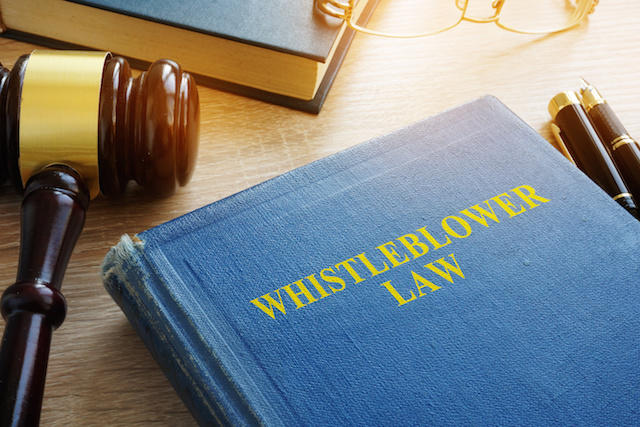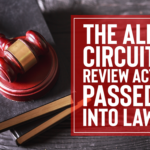Bringing a whistleblower complaint can have outstanding benefits for the whistleblower: standing up for justice and fair markets, saving taxpayer dollars, and winning a substantial personal whistleblower award (often 15% to 25% of proceeds collected), chief among them. But it can also can be an unnerving process, especially when the whistleblower is an employee of the company where the illegal acts are occurring.
Obviously, most companies do not want to find themselves at the center of a scandal in which they or their employees are shown to be defrauding the government or engaging in other illegal behavior. But, in many cases, that is the price of a more fair and just society. With that in mind, one of the primary questions we hear is whether a current or potential whistleblower needs to inform their employer about the whistleblower complaint.
You May Be Required to NOT Tell Your Company First
In a February 2018 Supreme Court decision, the court unanimously held that a whistleblower who told his company first about the illegal behavior could not bring a retaliation claim because he did not report the information to the SEC first. Talk to a whistleblower attorney about what this means for your situation.
Your Employer Cannot Compel You to Divulge Info By Force of Law
The short answer is that, in most cases, no, there will not be a requirement that you inform your employer that you are seeking to make the illegal acts of the company or its employees known to federal authorities. Our federal whistleblower laws are created to reflect the fact that corporate wrongdoers will try to silence those who seek to bring truth to light, and thus offer protections for reporting this information confidentially.
While an employer may attempt to make either direct or implied statements that it is against company policy to go outside the company with information of illegal acts, a private employer does not have the force of law behind it to enforce such statements. Furthermore, they are not entitled to force you to divulge information about your whistleblowing activities.
Working with an experienced whistleblower attorney throughout the process, however, is often key to maneuvering delicate conversations with your employer to protect your interests.
Your Conversations With a Whistleblower Attorney are Confidential
When you speak with a whistleblower attorney about concerns of wrongdoing at your company, and what you can do to stop it (while collecting a large financial reward), your conversations will be protected by attorney-client privilege. That means neither you nor your attorney can be compelled to share this information with an employer, a court, or any other party.
You Are Protected From Whistleblower Retaliation
Federal law (along with many state laws) protects employees from retaliation by their employers when those employees are going through proper outside channels to report acts and patterns of illegal behavior to government authorities. An act of retaliation by an employer (intimidation, suspension, termination, loss of pay or benefits, etc.) may even open the door to an employment law claim against the employer, and thus even greater financial recovery.
While you should not seek to invite employer retaliation, the bottom line is that such retaliation is illegal and there are penalties brought against employers for doing so.
Federal Agencies May Request That You Stay Quiet
When your attorney brings the information of wrongdoing to federal authorities – which could include the Department of Justice, the IRS, the SEC, the CFTC, or other agency – the government representatives handling the matter may even specifically request that you keep the information private from your employer as part of building the case for maximum financial recovery.
Reach Out to an Experienced Whistleblower Attorney Today
At Kreindler & Associates, our experienced whistleblower attorneys will work with you every step of the way to determine your appropriate course of action, protect you from retaliation, and collect your much-deserved reward. All of our consultations are 100% confidential. Contact us today for an evaluation of your allegations.




